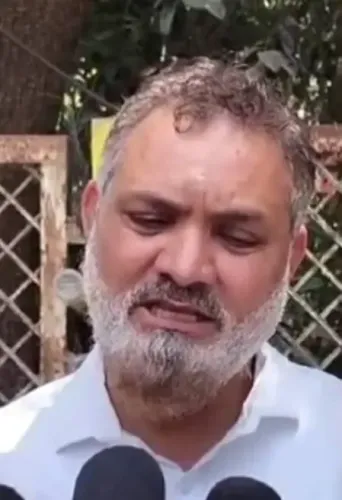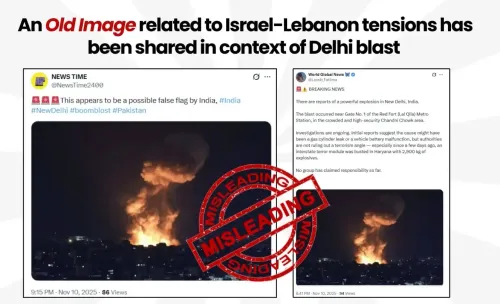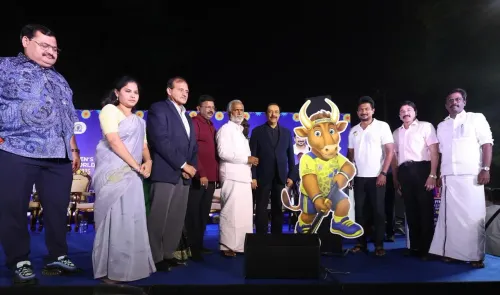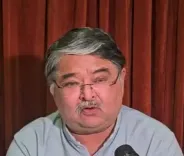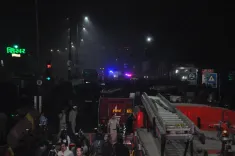Bangladesh Dismantles 1971 Liberation War Mural
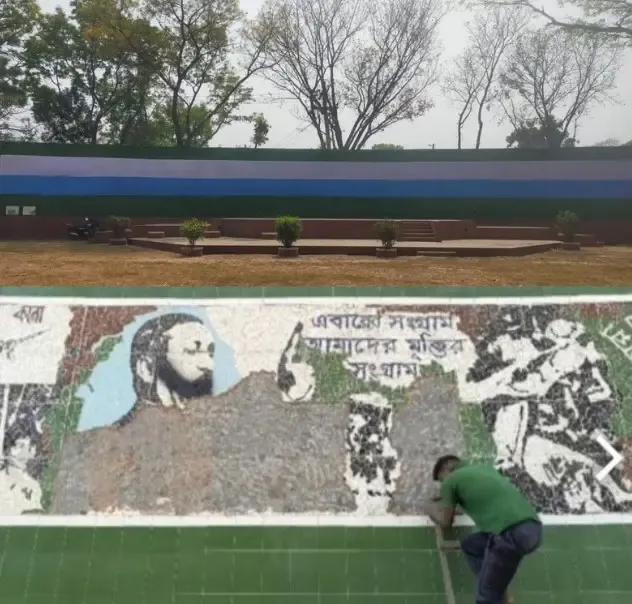
Synopsis
Key Takeaways
- Mural demolished under local government orders.
- Represented key events from Bangladesh's history.
- Triggered significant public outcry and protests.
- Controversy surrounding Independence Day celebrations.
- Impact of the July Revolution on historical narratives.
Dhaka, March 31 (NationPress) Just days after wrapping the mural of the Liberation War Memorial Mancha in Lalmonirhat district, Bangladesh authorities ordered its demolition. The mural was taken down from Sunday morning until evening.
Workers reported to local media that they acted under the instructions of the Lalmonirhat Deputy Commissioner.
This mural commemorated significant events, including the 1950s language movement, the iconic March 7 speech, the War of Independence, the establishment of the Mujibnagar government, the dawn of a new era in the independent nation, the 1971 genocide by Pakistan, the valiant freedom fighters celebrating their victory, the seven great heroes, the surrender of the Pakistani army, and the jubilant crowds waving the national flag.
Transparency International Bangladesh (TIB) has expressed intentions to protest this action, as reported by the prominent Bangladeshi newspaper The Dhaka Tribune.
“We had previously opposed the covering of the Liberation War mural... Our protests will continue,” stated TIB Area Coordinator Md Morshed Alam.
The mural was draped in cloth during Bangladesh's Independence Day celebrations, which sparked widespread backlash from citizens labeling it a “shameless interference” in the history of the Bengali nation.
District officials reportedly covered the mural following demands from the student group Students Against Discrimination (SAD), which argued it “does not align” with the spirit of the July Revolution.
SAD, along with other student organizations, had orchestrated a violent uprising in July that resulted in the overthrow of the democratically elected government of former Prime Minister Sheikh Hasina.
The Lalmonirhat Conscious Citizens Committee (Sonak) and TIB have both vehemently condemned and protested the actions taken by the interim government led by Muhammad Yunus.
Speaking to the well-known Bengali daily Prothom Alo, Sonak President Azizul Haque emphasized that the mural at the Liberation War Memorial Hall represents key historical events from the 1952 Language Movement to the momentous Liberation War of 1971. He argued that covering such a mural on significant dates like December 16, 2024, and March 26 is indefensible.
Previously, the Dhaka South City Corporation (DSCC) had renamed various roads and structures that honored Bangabandhu Sheikh Mujibur Rahman, his family, and leaders of the Awami League.
For instance, Bangabandhu Avenue was renamed Shaheed Abrar Fahad Avenue as per an order from the DSCC.
Since the Yunus government took office in August 2024, approximately 1500 sculptures, murals, and memorials have been vandalized, set ablaze, and destroyed throughout the country.

